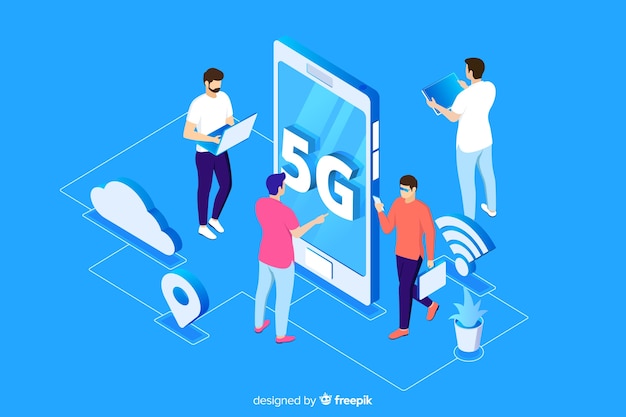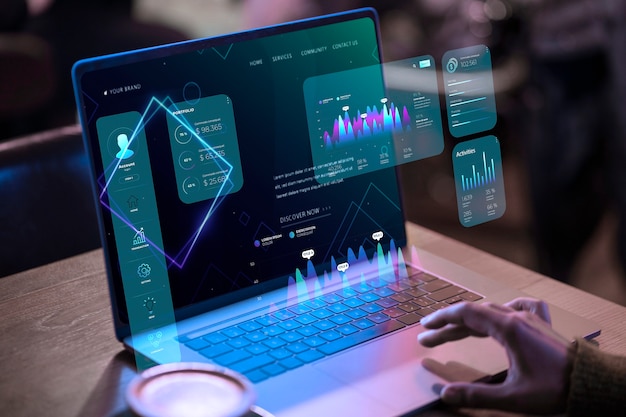The arrival of 5G technology has brought a revolutionary transformation in mobile networks, significantly improving speed, reliability, and efficiency. This next-generation network is not just about faster internet but also about redefining how mobile applications perform and enhancing user experience in unprecedented ways. In this article, we will explore the impact of 5G on mobile apps, its benefits, and how it is shaping the future of digital experiences.
The Speed Revolution: Enhancing Mobile App Performance
One of the most notable improvements of 5G over its predecessors is the significant increase in speed. With speeds reaching up to 10 Gbps, 5G is nearly 100 times faster than 4G. This ultra-fast connectivity allows mobile applications to function seamlessly without lag or buffering issues, making activities such as streaming, gaming, and browsing more fluid and responsive.
For mobile app developers, this means an opportunity to create more sophisticated applications that require high bandwidth. Augmented Reality (AR) and Virtual Reality (VR) apps, which were previously limited by network constraints, can now operate smoothly, providing users with immersive experiences without delays.
Reduced Latency: Real-Time Responsiveness
Latency is a crucial factor in mobile applications, particularly for real-time applications like online gaming, video conferencing, and IoT-based services. 5G dramatically reduces latency to as low as 1 millisecond, compared to 4G’s 50 milliseconds.
This reduction in latency ensures that users can enjoy real-time interactions without disruptions. For example, in multiplayer gaming, players can experience near-instant responses to their actions, making gameplay more engaging and competitive. Similarly, remote healthcare applications, such as telemedicine and robotic surgeries, can perform with greater accuracy and efficiency due to minimal delays in data transmission.
Increased Network Capacity: Handling More Devices Efficiently
As the number of connected devices grows, network congestion becomes a serious issue. 5G offers an increased network capacity that can support a vast number of devices simultaneously without affecting performance. This is particularly beneficial in smart cities, where multiple IoT devices, from smart homes to autonomous vehicles, need to communicate seamlessly.
For mobile apps, this means better performance in crowded areas such as stadiums, concerts, and public events, where networks previously struggled with high demand. Users can now enjoy uninterrupted services regardless of the number of connected devices around them.
Improved Energy Efficiency and Battery Life
One of the lesser-known benefits of 5G is its energy efficiency. With improved network management and reduced latency, devices require less power to maintain a stable connection. This leads to longer battery life for smartphones and other connected gadgets, benefiting mobile users who rely on their devices for extended periods.
For mobile applications, this translates to better app efficiency, as they can optimize their processes without excessive battery drain. Developers can design apps that run seamlessly without compromising device performance.
The Rise of Cloud-Based Applications
With faster speeds and lower latency, 5G accelerates the adoption of cloud computing. Mobile applications no longer need to store massive amounts of data locally, as they can access cloud servers almost instantly. This enables lighter, more efficient apps with real-time data synchronization.
Cloud gaming services, such as Google Stadia and Xbox Cloud Gaming, are some of the biggest beneficiaries of 5G technology. These platforms allow users to stream high-end games without requiring powerful hardware, making gaming more accessible to a wider audience.
Transforming Industries Through Mobile Apps
The impact of 5G extends beyond entertainment and gaming, influencing various industries through mobile applications:
Healthcare: Telemedicine apps can provide real-time consultations with doctors, remote diagnostics, and even robotic-assisted surgeries with minimal delay.
Retail: AR-powered shopping experiences allow customers to try products virtually before making a purchase decision.
Education: Interactive and immersive learning apps, including VR classrooms, become more viable with high-speed, low-latency connectivity.
Automotive: Autonomous vehicles rely on 5G networks to communicate efficiently with infrastructure and other vehicles, improving safety and traffic management.
Finance: Mobile banking and stock trading apps can execute transactions faster, reducing risks associated with market fluctuations.
Challenges and Considerations
Despite its advantages, 5G also comes with certain challenges. The deployment of 5G infrastructure requires significant investment and time, meaning its availability may be limited in some regions. Additionally, security concerns arise as more devices connect to the network, requiring enhanced cybersecurity measures to protect user data.
Another challenge is the compatibility of older devices with 5G networks. Users may need to upgrade their smartphones and other gadgets to fully experience the benefits of 5G, which could be a costly transition.
Conclusion
The impact of 5G on mobile app performance and user experience is undeniable. With faster speeds, reduced latency, improved energy efficiency, and greater network capacity, 5G is paving the way for innovative applications and digital transformation across various industries. As technology continues to evolve, we can expect mobile applications to become more powerful, immersive, and efficient, ultimately enhancing the way we interact with the digital world.
As 5G networks continue to expand globally, businesses and developers must adapt to this technological shift, leveraging its potential to create cutting-edge applications that redefine user experiences. The future of mobile apps is here, and it is being shaped by the power of 5G.





